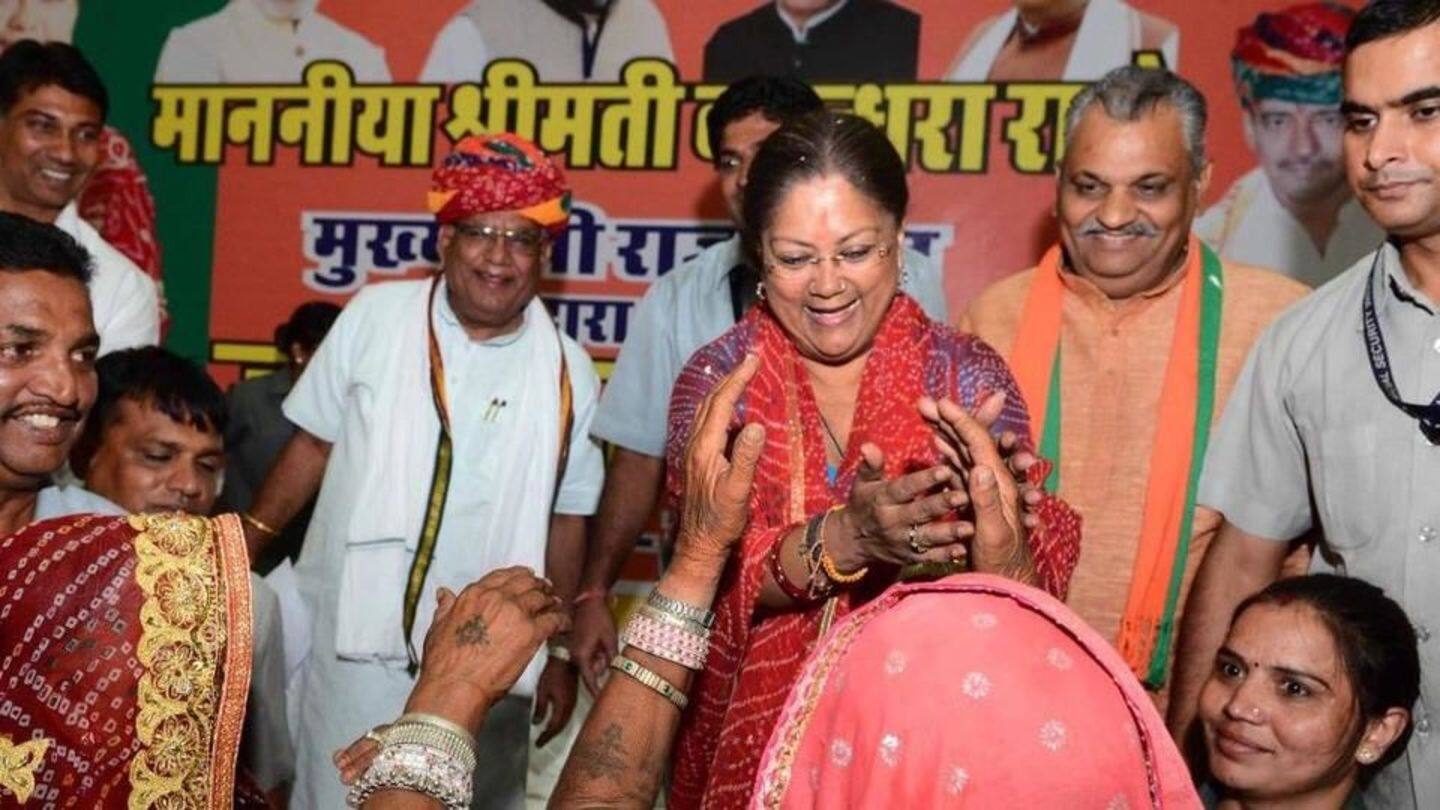
Amid protests, Rajasthan government shields public servants' investigation through bill
What's the story
Despite opposition's protests led by the Congress party, the Rajasthan government tabled the Criminal Laws (Rajasthan Amendment) Bill, 2017, which amends the Criminal Code of Procedure, 1973.
It protects present and former judges, magistrates and public servants from investigation for on-duty action without Rajasthan government's sanction.
It also disallows the media from naming the public servant until Rajasthan government investigates the case. Know more!
Ordinance
The Ordinance that will become a law
On September 7, the Vasundhra Raje-led BJP government had passed an ordinance amending Section 156 of the Code of Criminal Procedure.
The ordinance made it a criminal offence to investigate and identify public servants facing corruption allegations until government sanction is obtained.
If government does not respond within six months, sanction will be assumed.
Violators will be imprisoned for two years.
Centre
Centre approves of the Ordinance
The Ordinance is a legal tool that governments use to pass temporary laws when the Assembly/Parliament is not in session. However, to become a law, it needs to be tabled in Assembly/Parliament within six months.
Since this ordinance amended a Central law, it required Governor's approval.
This was granted, implying that it was approved by the home ministry, which termed it "perfect and balanced."
Congress
Congress leaders protest as ordinance gets tabled, are detained
Congress leaders protested the bill by staging a walkout.
Leader of Opposition Rameshwar Dudhi and Rajasthan Congress President Sachin Pilot along with other party workers led a protest march to Raj Bhavan. However, they were detained by the police.
Pilot had earlier said that the government wants to cover its own corruption and it will be opposed "inside and outside the assembly."
Do you know?
The order is challenged in the HC
This bill was challenged in the HC and openly opposed by BJP's Bhawani Singh Rajawat and Ghanshyam Tiwari. The petition says that it "allows a large section of the society the license to commit crime" and is against 'the right to fair investigation and equality'.
State government
State government defends the bill
Rajasthan's state government defended the bill by saying that it was meant to end "frivolous allegations," which aim to defame officials and ministers.
Rajasthan HM Gulab Chand Kataria defended it by saying that he had to face a media trial after being named by CBI in 2005 Sohrabuddin Sheikh encounter case despite there being "insufficient evidence."
He said media trial affects public servants' morale.
Other reactions
What were the other reactions to the bill?
Congress VP Rahul Gandhi tweeted "Madam Chief Minister, with all humility we are in the 21st century. It's 2017, not 1817."
The Editor's Guild slammed the bill calling it "draconian" and expressed "deep concern" about it.
AAP's Rajasthan in-charge Kumar Vishwas called Vasundhra Raje a female Kim Jong-un. Subsequently, AAP flooded twitter with #TughlaqiMaharani, which was soon trending.
Implication
What is the implication of this bill?
This bill will be passed as BJP has 162 of 200 seats in the Assembly.
It directly affects the media and whistleblowers. Though it doesn't restrict the media from reporting scams, the media can't name the persons involved, giving those individuals time to take corrective steps or tamper with evidence.
This indirectly inhibits the Opposition's power to use media to highlight government's wrongdoings.
Other attempts
Previous such attempts in the past
The Maharashtra government has a similar law. However, the government's time limit to accord sanctions is 90 days, and it does not gag the media.
The Manmohan Singh-led UPA government had in 2013 introduced an amendment of "prior sanction" in the Prevention of Corruption Act to protect "honest civil servants." However, it is still pending.
SC has, in consistent rulings, struck down such provisions.